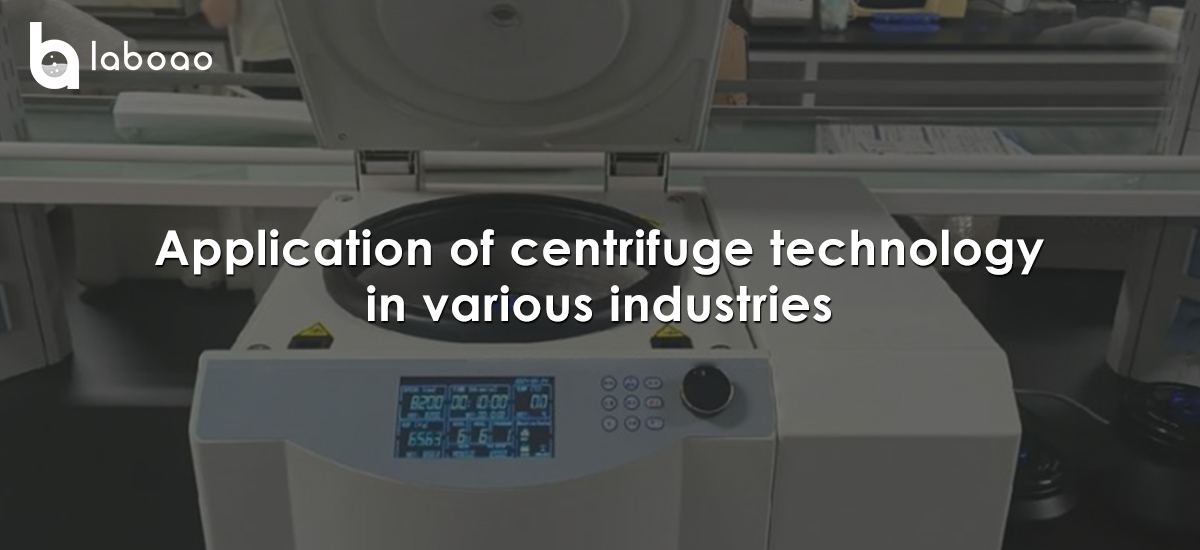
1. Applications of Centrifuges in Medicine
Centrifuges are used in a wide range of applications in the medical industry, including blood separation, virus research, DNA research, and pharmaceutical purification. High-speed medical centrifuges are required for the separation and research of cells and DNA molecules. They are also used to isolate hybridoma cells producing antibodies, collect bacteria and other microorganisms such as yeast that produce soluble and inclusion-body proteins, isolate cell lines for activity assays, and perform batch purification.
2. Applications of Centrifuges in Pharmaceuticals
In some API production processes, disc separators or spiral decanter centrifuges are commonly used. Currently, the more mature applications of centrifuges in pharmaceutical production include antibiotics (penicillin, tetracycline, erythromycin); vitamins; animal-derived pharmaceuticals (such as pancreatic insulin and plant-derived alkaloids); and the separation of microorganisms and bacteria. Pharmaceuticals produced through fermentation often involve a mycelium separation process, and different centrifuges are used for different products.
3. Applications of Centrifuges in Biological Sciences
Centrifuge technology has long played a vital role in biological sciences, particularly in biochemistry and molecular biology research. Every biochemistry and molecular biology laboratory, as well as various universities, has various types of high-speed centrifuges installed. Centrifugation is primarily used for the separation and preparation of various biological samples. When a biological sample suspension is spun at high speed, the enormous centrifugal force causes the suspended particles to settle at a specific rate, separating them from the solution. The settling rate depends on the particle mass, size, and density.
4. Applications of Centrifuges in Industry
Centrifugal technology has a wide range of industrial applications, such as treating wastewater from cold and hot rolling, treating wastewater from steelmaking converters and blast furnaces, and treating washing fluids from specialty steelmaking.
5. Applications of Centrifuges in Food
Food safety is crucial to the health and safety of the general public and has become a crucial aspect of measuring the quality of human life, the level of social management, and the development of a national legal system. In the food industry, centrifuges are primarily divided into two types: decanter centrifuges and filter centrifuges. Decanter centrifuges dominate the food industry. For example, it can be used for milk clarification and stabilization, cooking oil refining, cheese and yogurt production, lactose, casein, butter, wine, various fruit juices, beer, coffee, jelly, sugar production, molasses, yeast and yeast extract, starch, palm oil, lecithin, vegetable oils, animal fat, gelatin, serum, blood meal, fish meal, fish oil, citric acid, MSG, algae, soy protein, single-cell protein, quick-frozen vegetables, ginseng royal jelly, soap, olive oil, fermented broth, instant beverages, vitamins, grains, and meat processing. Filtration centrifuges are also widely used, including for sugar, MSG, starch, protein recovery, yeast, glucose, citric acid, and for separating juice from various fruits and plants, as well as freeze-concentrating. The need for centrifugal separation technology in food processing processes is gradually increasing.
6. Application of Centrifuges in Petroleum
In the petroleum sector, the challenge of solid-liquid separation has long plagued the industry, particularly in drilling mud, oilfield sludge, oil tank sludge at oil and gas stations, and refinery tank sludge, as well as the separation of three types of sludge. Wastewater and waste oil generated in the petroleum industry often contain a certain amount of crude oil. Using traditional filtration equipment to treat this wastewater often results in clogging of the filter cloth or belt, making it impossible to regenerate, resulting in a very short service life and high subsequent operating costs. Furthermore, replacing the filter cloth is labor-intensive and time-consuming, making it impossible to guarantee continuous and normal operation. However, the unique structure of a centrifuge allows for easy and stable operation with minimal additional equipment (cyclones, vibrating screens, heaters, etc.). Heating the dehydrated and deoiled residue allows for crude oil recovery and harmless treatment. Centrifuges and their auxiliary equipment can be installed in a skid configuration, enabling rapid transfer and rapid production within highly mobile oilfields.